
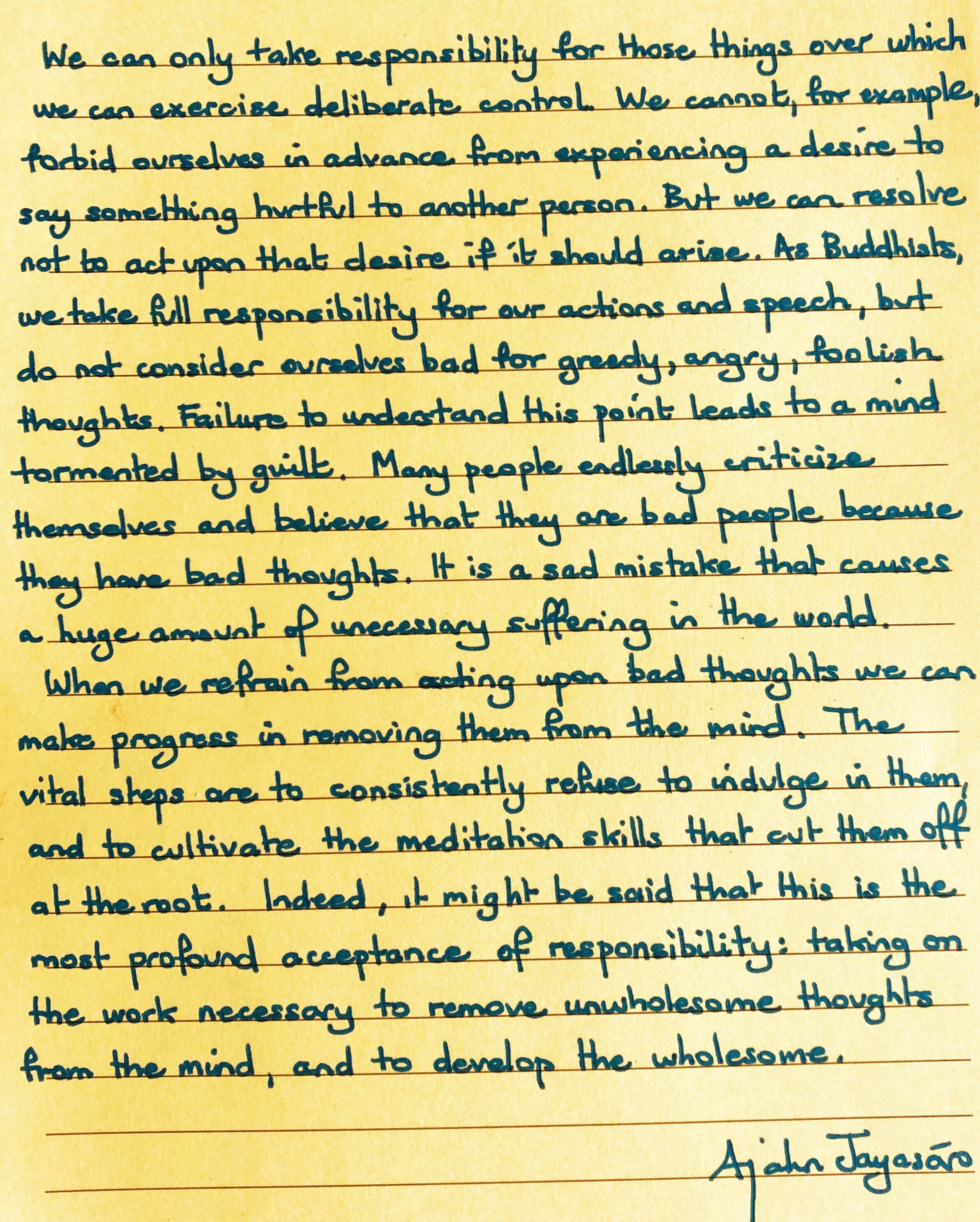
The Most Profound Acceptance of Responsibility
We can only take responsibility for those things over which we can exercise deliberate control. We cannot, for example, forbid ourselves in advance from experiencing a desire to say something hurtful to another person. But we can resolve not to act upon that desire if it should arise.

Modern Buddhist Practice: Between Secularism and Traditionalism
Prof. Geshe Georges Dreyfus speaks at BIA about how Ajahn Buddhadasa's teachings helped him to understand the Dhamma in ways that are appropriate for a modern scientifically educated person and yet also completely respectful …

Stopping the Flow of Dependent Origination
“Do you think traveling around the world is just an escape from your responsibility for the society you’re involved with?”
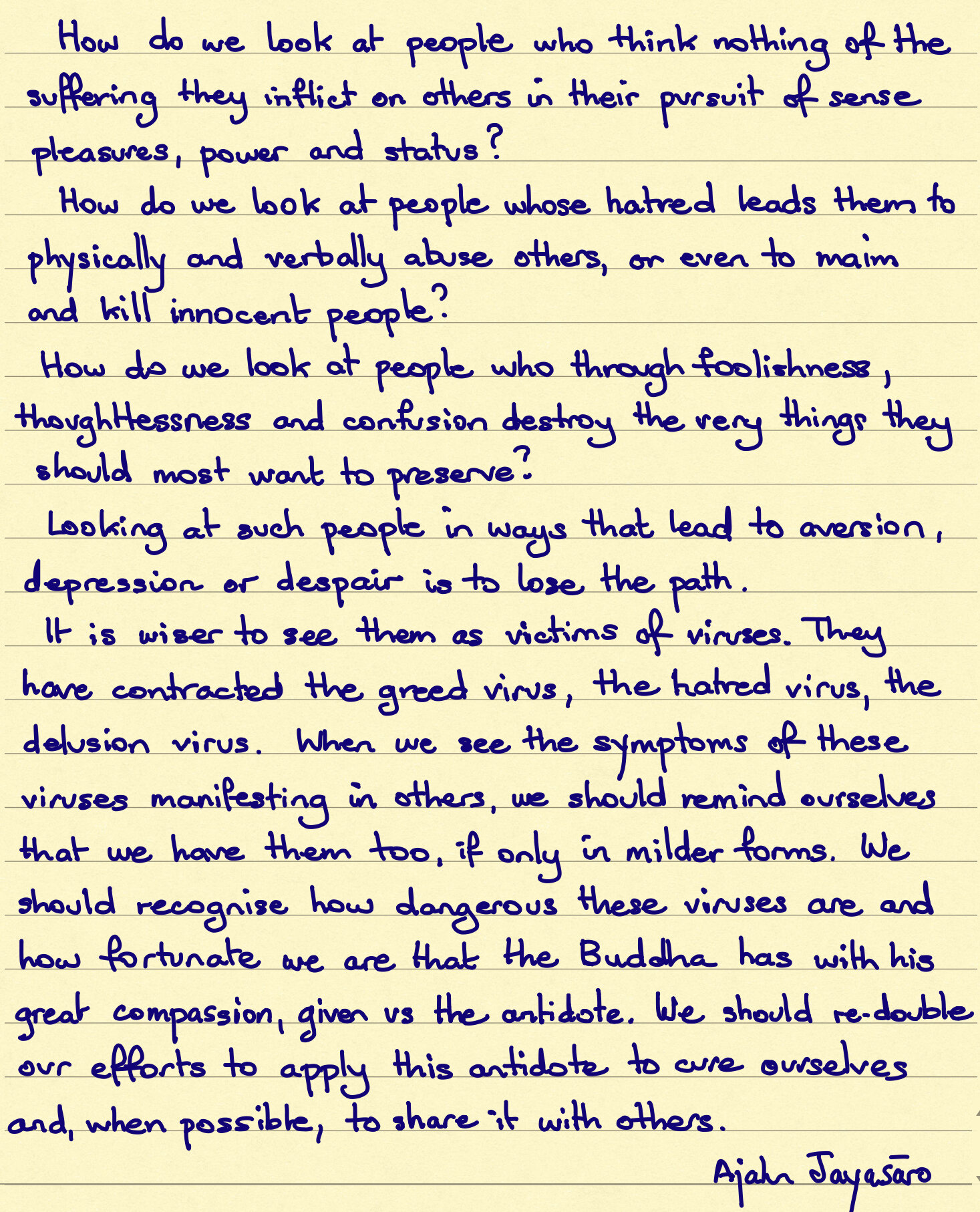
Victims of Viruses
How do we look at people who think nothing of the suffering they inflict on others in their pursuit of sense pleasures, power and status?
How do we look at people whose hatred leads them to physically and verbally abuse others, or event to maim and kill innocent people?

Stopping the Flow of Dependent Origination
“How would Buddhism approach the problem of addiction? Whether it be alcohol, drugs, food, or other forms such as gambling?”
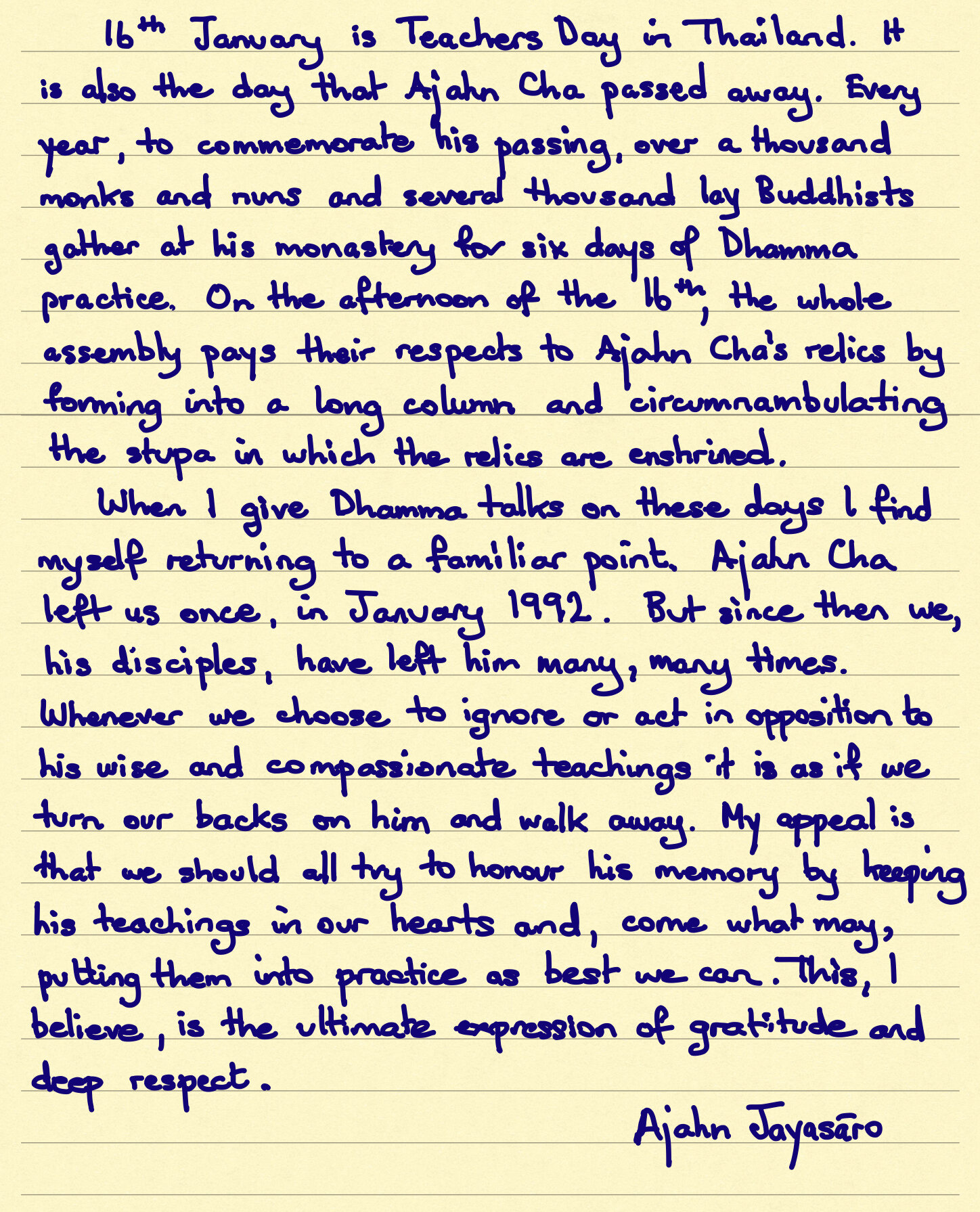
The Ultimate Expression of Gratitude and Deep Respect
16th January is Teachers Day in Thailand. It is also the day that Ajahn Cha passed away. Every year, to commemorate his passing, over a thousand monks and nuns and several thousand lay Buddhists gather at his monastery for six days of Dhamma practice.

Stopping the Flow of Dependent Origination
“‘Do good and get good, do bad, get bad.’ But some people do bad things and get good. Please advise on this?”
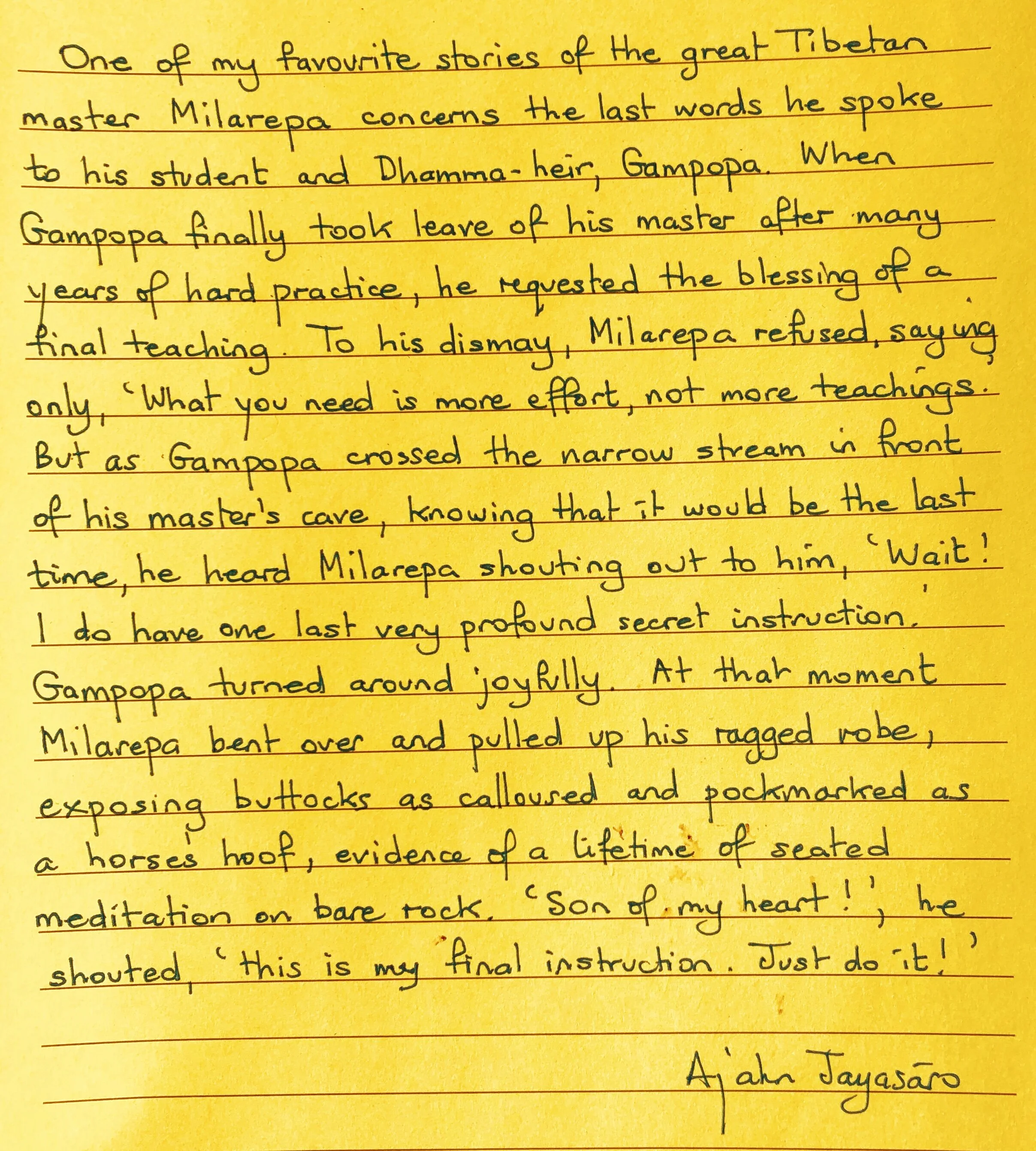
The Master’s Final Teaching
One of my favourite stories of the great Tibetan master Milarepa concerns the last words he spoke to his student and Dhamma-heir, Gampopa. When Gampopa finally took leave of his master after many years of hard practice, he requested the blessing of a final teaching.

Stopping the Flow of Dependent Origination
“Do you think it is wise to introduce our friends or family members who have such strong problems that they need years of psychotherapy to come back to a normal, what means peaceful life to the Buddhism, to meditation, or to both? Could that help far away from a Buddhist country? Which way of doing this would be best? Should we give them books about Buddhism or meditation? Should we discuss what we learned about? Should we send them to Thailand? Or what should we do?”
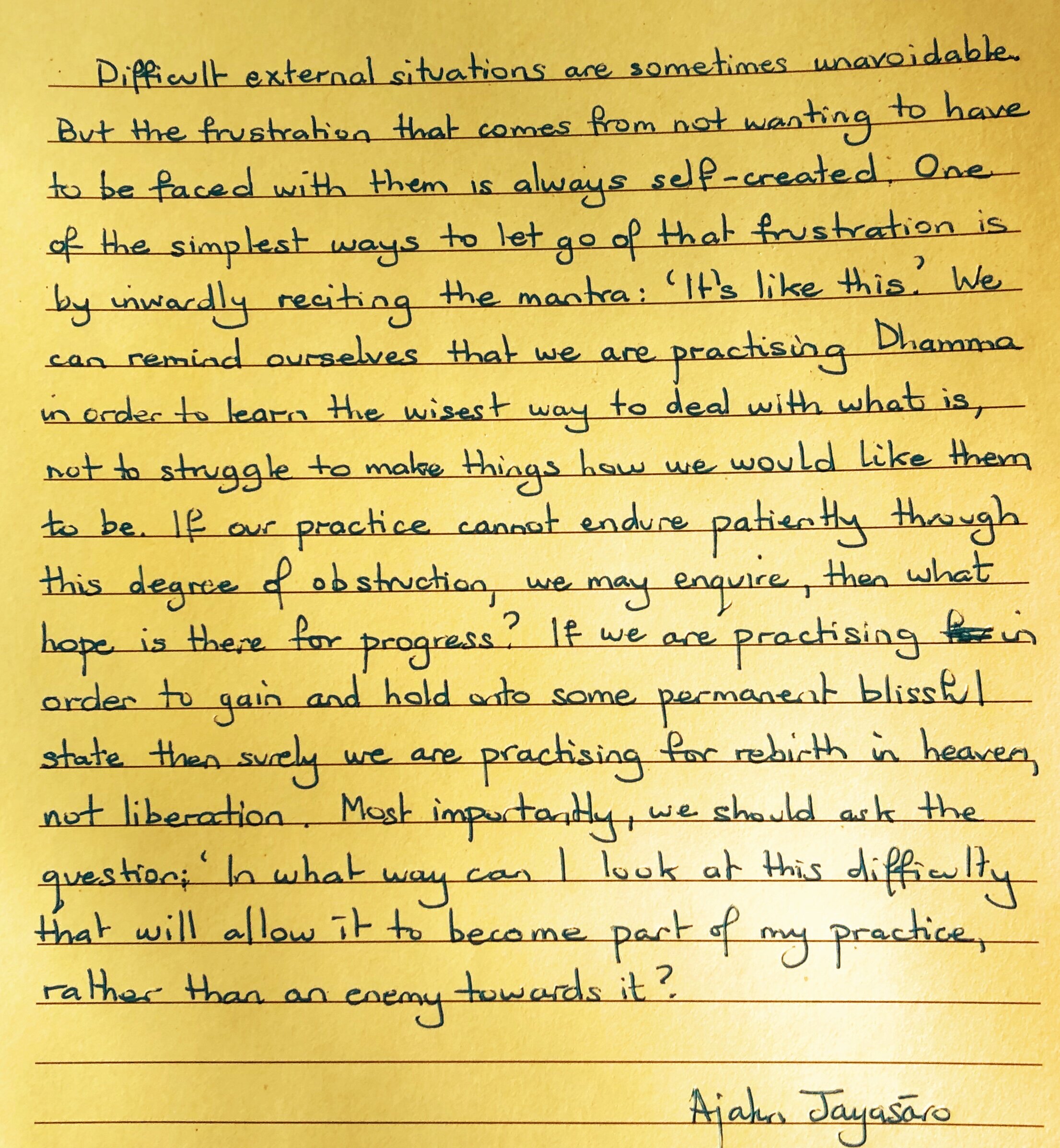
‘It’s Like This.’
Difficult external situations are sometimes unavoidable. But the frustration that comes from not wanting to have to be faced with them is always self-created.
